Vitamin D3 has a therapeutic effect on infections and diseases
- which vitamin D2 does not have
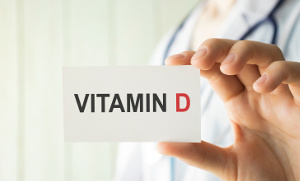 Vitamin D2 occurs naturally in foods from the plant kingdom while vitamin D3 comes from animal sources. It is also vitamin D3 that we synthesize in our skin in response to sun exposure. Scientists from the Universities of Surrey and Brighton in Great Britain have now discovered that the two types of vitamin D have entirely different effects. They therefore sow doubts about vitamin D2’s role in human health, whereas vitamin D3 is known for its vital role in helping the immune system in its fight against infections such as COVID-19. Most cells in the body have vitamin D receptors, and the nutrient is also important for cancer prevention, the nervous system, our mood, and a number of other functions. Vitamin D3 from food, supplements, or sunshine must be activated in the body before it can be utilized.
Vitamin D2 occurs naturally in foods from the plant kingdom while vitamin D3 comes from animal sources. It is also vitamin D3 that we synthesize in our skin in response to sun exposure. Scientists from the Universities of Surrey and Brighton in Great Britain have now discovered that the two types of vitamin D have entirely different effects. They therefore sow doubts about vitamin D2’s role in human health, whereas vitamin D3 is known for its vital role in helping the immune system in its fight against infections such as COVID-19. Most cells in the body have vitamin D receptors, and the nutrient is also important for cancer prevention, the nervous system, our mood, and a number of other functions. Vitamin D3 from food, supplements, or sunshine must be activated in the body before it can be utilized.
- Created on .








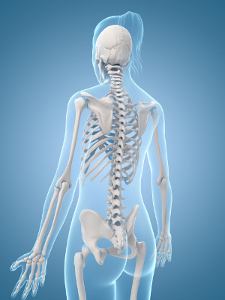 Many people avoid dairy products because they are lactose intolerant, are vegan, or for other reasons. Milk is a good source of nutrients, especially calcium, but you can easily get enough calcium from other food sources. What is more, it appears that vitamin D, vitamin K2, and the calcium/magnesium ratio is even more important than calcium alone for the structure and maintenance of strong bones. Another thing to remember is that sugar, soft drinks, stimulants, and certain types of medicine can disrupt the bone-building processes. Therefore, having strong bones is about a lot more than dairy products and calcium alone. Finally, don’t forget that daily weight-bearing exercise stimulates bone density.
Many people avoid dairy products because they are lactose intolerant, are vegan, or for other reasons. Milk is a good source of nutrients, especially calcium, but you can easily get enough calcium from other food sources. What is more, it appears that vitamin D, vitamin K2, and the calcium/magnesium ratio is even more important than calcium alone for the structure and maintenance of strong bones. Another thing to remember is that sugar, soft drinks, stimulants, and certain types of medicine can disrupt the bone-building processes. Therefore, having strong bones is about a lot more than dairy products and calcium alone. Finally, don’t forget that daily weight-bearing exercise stimulates bone density.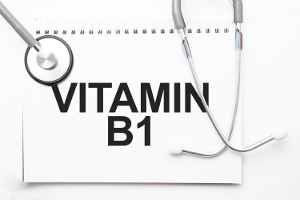 A team of scientists from Århus University Hospital has discovered that high-doses supplementation with
A team of scientists from Århus University Hospital has discovered that high-doses supplementation with 
 Levels of
Levels of 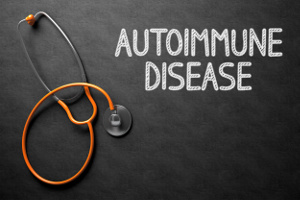 Autoimmune diseases occur in the wake of chronic inflammation and are the result of the immune defense erroneously attacking the body’s own tissues. Rheumatoid arthritis, psoriasis, sclerosis, and Hashimoto’s disease (that causes hypothyroidism) are all examples of autoimmune diseases that primarily affect women and older people. The diet plays a significant role and according to a study published in The British Medical Journal, supplements of vitamin D and fish oil taken for extended periods can lower the rate of autoimmune diseases. This is useful knowledge because these diseases are on the rise and the medicine that is used to treat them often comes with serious side effects.
Autoimmune diseases occur in the wake of chronic inflammation and are the result of the immune defense erroneously attacking the body’s own tissues. Rheumatoid arthritis, psoriasis, sclerosis, and Hashimoto’s disease (that causes hypothyroidism) are all examples of autoimmune diseases that primarily affect women and older people. The diet plays a significant role and according to a study published in The British Medical Journal, supplements of vitamin D and fish oil taken for extended periods can lower the rate of autoimmune diseases. This is useful knowledge because these diseases are on the rise and the medicine that is used to treat them often comes with serious side effects.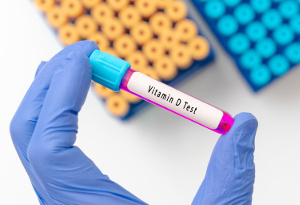 Lack of
Lack of 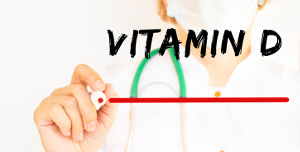 It has already been documented that the widespread problems with vitamin D deficiency increase the risk of being infected with COVID-19 and developing life-threatening complications. In a new study, a team of Turkish scientists has demonstrated that swift treatment with
It has already been documented that the widespread problems with vitamin D deficiency increase the risk of being infected with COVID-19 and developing life-threatening complications. In a new study, a team of Turkish scientists has demonstrated that swift treatment with 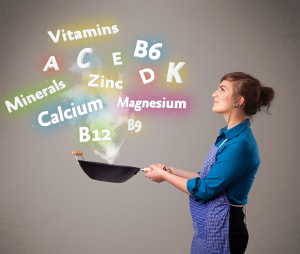 In ancient times when our ancestors hunted, they consumed every inch of the animal – from one end to another. Organ meat such as the liver, the heart, and the kidneys were delicacies that contained far more essential nutrients than other parts of the animal. In Western countries, we primarily consume muscle meat. In addition, animals often get unnatural fodder with suboptimal nutrient content. This results in deficiencies and an imbalance between amino acids and fatty acids. In the following article, you can read more about organ meats (also known as offal), bone marrow, and bone broth and their high content of essential amino acids,
In ancient times when our ancestors hunted, they consumed every inch of the animal – from one end to another. Organ meat such as the liver, the heart, and the kidneys were delicacies that contained far more essential nutrients than other parts of the animal. In Western countries, we primarily consume muscle meat. In addition, animals often get unnatural fodder with suboptimal nutrient content. This results in deficiencies and an imbalance between amino acids and fatty acids. In the following article, you can read more about organ meats (also known as offal), bone marrow, and bone broth and their high content of essential amino acids, 
 Overweight is looked upon as a global epidemic with grave consequences for public health. In a new review article that is published in International Journal of Molecular Sciences, scientists look closer at the relation between melatonin and overweight. Primarily known for its role as a sleep hormone, melatonin is also important for the body’s carbohydrate and lipid metabolism. The authors study melatonin’s role in the body’s energy metabolism and in oxidative stress and inflammation, which is known to make overweight bad for your health. They also look at how melatonin affects the circadian rhythm and its role in sleep disturbances and the gut flora that also influence body weight.
Overweight is looked upon as a global epidemic with grave consequences for public health. In a new review article that is published in International Journal of Molecular Sciences, scientists look closer at the relation between melatonin and overweight. Primarily known for its role as a sleep hormone, melatonin is also important for the body’s carbohydrate and lipid metabolism. The authors study melatonin’s role in the body’s energy metabolism and in oxidative stress and inflammation, which is known to make overweight bad for your health. They also look at how melatonin affects the circadian rhythm and its role in sleep disturbances and the gut flora that also influence body weight. Cardiovascular diseases are the leading cause of death and, as it turns out, alarming problems with
Cardiovascular diseases are the leading cause of death and, as it turns out, alarming problems with  Impaired sperm quality if one of the major reasons for involuntary infertility. Studies show that oxidative stress, an imbalance between harmful free radicals and protective antioxidants, causes damage to sperm cells. In a review article that is published in Reproductive Sciences, a group of researchers look closer at different molecular mechanisms and how vitamins C, E, selenium, zinc, and coenzyme Q10 plus other antioxidants protect the vulnerable sperm cells.
Impaired sperm quality if one of the major reasons for involuntary infertility. Studies show that oxidative stress, an imbalance between harmful free radicals and protective antioxidants, causes damage to sperm cells. In a review article that is published in Reproductive Sciences, a group of researchers look closer at different molecular mechanisms and how vitamins C, E, selenium, zinc, and coenzyme Q10 plus other antioxidants protect the vulnerable sperm cells.